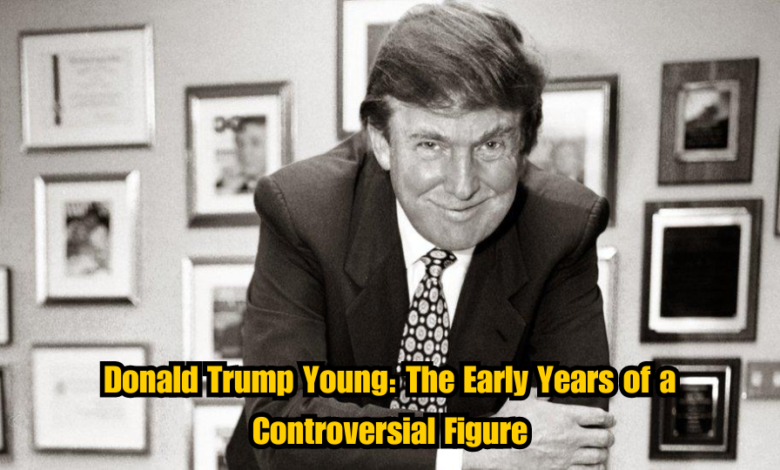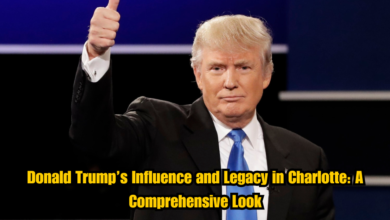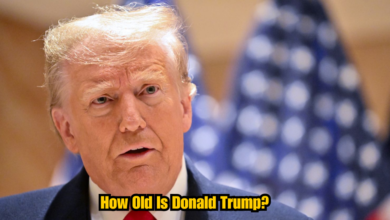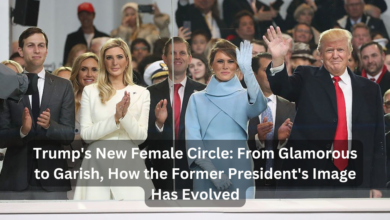Donald Trump Young: The Early Years of a Controversial Figure

Donald Trump is a name synonymous with wealth, controversy, and political clout. But how did he rise to become one of the most recognizable figures in American history? To understand Donald Trump today, it’s crucial to dive into the story of his youth, his upbringing, and the defining moments that shaped his worldview. This article explores the early years of Donald Trump, shedding light on his family background, education, and the experiences that influenced his trajectory.
Family Background: Born into Affluence
Donald John Trump was born on June 14, 1946, in Queens, New York City, to a real estate developer Fred Trump and Scottish immigrant Mary Anne MacLeod Trump. His father, Fred Trump, was a highly successful real estate mogul who made a fortune developing and managing middle-class rental housing in New York. From a young age, Donald Trump was exposed to the world of real estate, wealth, and power, which greatly influenced his ambitions and approach to business.
Growing up in a family where hard work and entrepreneurial spirit were celebrated, Donald was never far from his father’s shadow. Fred Trump was known for being a demanding, no-nonsense businessman who valued results over effort. Donald, as the fourth of five children, found himself constantly striving to match or surpass his father’s expectations. This drive, instilled at a young age, laid the foundation for his future persona—a fierce competitor willing to do whatever it takes to win.
The Military Academy Experience: Discipline and Rebellion
Donald Trump’s teenage years were marked by a blend of privilege and rebellion. By age 13, his parents, troubled by his disciplinary issues, decided to enroll him at the New York Military Academy. This decision was not a punishment but rather an attempt to channel his unruly energy into a more disciplined environment.
The academy proved to be a transformative experience for young Donald. It was here that he learned the value of discipline, leadership, and strategic thinking—qualities that would define his business career and later his political approach. Although Trump initially resisted the strict regimen, he eventually thrived, rising to the rank of a student leader and earning the respect of his peers. He excelled in sports, particularly baseball, which showcased his competitive nature and drive to be the best.
Despite his success at the academy, Trump maintained a streak of rebellion. According to some accounts, he was known to bend the rules and exploit loopholes, demonstrating an early penchant for manipulating systems to his advantage—a characteristic that would become a hallmark of his business style in later years.
The Wharton School: A Formative Education in Business
After graduating from the military academy in 1964, Trump attended Fordham University for two years before transferring to the prestigious Wharton School of the University of Pennsylvania. Wharton, known for its rigorous business curriculum, provided Trump with a solid foundation in real estate, finance, and marketing. He graduated in 1968 with a Bachelor’s degree in Economics.
Trump’s time at Wharton was pivotal. Although he was not known for academic excellence, he gained practical knowledge that complemented the hands-on experience he received from working at his father’s firm during summers. This blend of formal education and real-world business exposure equipped him with the tools he needed to step into his father’s shoes.
Despite being a student, Trump’s ambitions were evident. He wasn’t just content to learn; he was already dreaming of building an empire. While other students were focused on grades, Trump was focused on deals and profits, often discussing potential business ventures with professors and fellow students.
Entering the Family Business: Trump Takes Over
After graduating, Trump formally joined his father’s company, Elizabeth Trump & Son. He was immediately thrust into the world of New York real estate, where his father had already made a significant mark. Under Fred’s mentorship, Donald honed his skills in deal-making, negotiation, and project management.
However, it wasn’t long before Trump set his sights on expanding the family business beyond its original scope. Fred Trump primarily focused on the outer boroughs of New York, but Donald had bigger ambitions—he wanted to conquer Manhattan. The glitz, glamour, and high stakes of Manhattan real estate appealed to him, and he was determined to establish a brand synonymous with luxury and opulence.
The Commodore Hotel Deal: Trump’s First Big Break
Donald’s first major deal came in the mid-1970s when he transformed the Commodore Hotel near Grand Central Terminal. The hotel, once a thriving business, had fallen into disrepair and was on the brink of collapse. Trump saw an opportunity and managed to secure funding and tax abatements from the city, which was desperate to rejuvenate the area.
This deal showcased Trump’s ability to think big and take calculated risks. He turned the dilapidated property into the Grand Hyatt Hotel, a resounding success that put the Trump name on the map. This move marked the beginning of Donald Trump’s transformation from being Fred Trump’s son to a prominent figure in Manhattan real estate.
Building the Trump Brand: The Young Mogul
Throughout the late 1970s and early 1980s, Donald Trump aggressively expanded his real estate holdings in Manhattan. He developed Trump Tower, a 58-story skyscraper on Fifth Avenue, which became his headquarters and a symbol of the Trump brand—luxury, power, and success. The glitzy atrium, adorned with marble and gold accents, quickly became a tourist attraction and a landmark in the city.
During this period, Trump’s media presence began to grow. He was a natural self-promoter, understanding the value of publicity long before the advent of social media. His flamboyant style, brash personality, and willingness to speak his mind made him a media magnet. Publications like The New York Times and Wall Street Journal began covering his every move, further enhancing his reputation as a successful young tycoon.
The Art of the Deal: Crafting a Public Image
In 1987, Trump published his book, “The Art of the Deal,” which became a bestseller. The book wasn’t just about his business strategies; it was about crafting a public persona. Trump presented himself as the ultimate deal-maker, someone who could turn any situation to his advantage.
The success of the book propelled Trump into the national spotlight. It was more than a business manual; it was a blueprint of his life. The book painted Trump as a savvy businessman who relied on instinct, intuition, and sheer willpower to succeed. It also gave insight into his no-holds-barred approach to competition, which would define his later business and political career.
Financial Highs and Lows: Lessons from Adversity
Despite his early successes, Trump’s career was not without setbacks. The late 1980s and early 1990s were a turbulent time for him. Over-leveraged and caught in a real estate downturn, Trump’s empire teetered on the edge of bankruptcy. His casinos, hotels, and other investments were hemorrhaging money, and many believed that he was finished.
But Trump proved to be resilient. He managed to negotiate with banks to restructure his debts, offering them a stake in his properties rather than defaulting outright. It was a remarkable turnaround that allowed him to survive one of the most challenging periods of his career. This period also revealed Trump’s willingness to take risks, his ability to rebound, and his tenacity—traits that would become central to his public narrative.
Transitioning to Media and Politics: A Young Visionary’s Ambitions
As Trump’s business fortunes recovered, he began to diversify his interests. He made appearances on television, starred in movies, and even launched his own board game. But it was his role as the host of “The Apprentice” in 2004 that truly elevated him to a new level of fame. The show portrayed Trump as a tough, no-nonsense leader who rewarded talent and eliminated weakness—a portrayal that resonated with millions of viewers.
This newfound fame led to speculation about a future in politics. While Trump had flirted with the idea of running for office as early as the late 1980s, it wasn’t until his 2016 presidential campaign that he fully transitioned from businessman to politician. His youthful ambition and early business strategies had laid the groundwork for his political persona—one that emphasized strength, decisiveness, and an outsider mentality.
Legacy of a Young Donald Trump: Bold, Unyielding, and Ambitious
The story of Donald Trump’s youth is one of ambition, controversy, and constant reinvention. His early years were marked by a desire to carve out his own identity, separate from his father’s shadow, and to establish a brand that would be synonymous with luxury, power, and influence. From the disciplined halls of the military academy to the boardrooms of New York City, Trump’s journey is a testament to his unconventional methods, his willingness to take risks, and his unwavering belief in his own abilities.
While opinions on Trump are deeply polarized, his impact on business, media, and politics cannot be denied. Understanding his early years offers valuable insights into the man behind the brand, the strategist behind the businessman, and the leader behind the public figure.
In conclusion, the youth of Donald Trump is more than just a precursor to his rise; it’s a blueprint for his approach to life, business, and politics.




